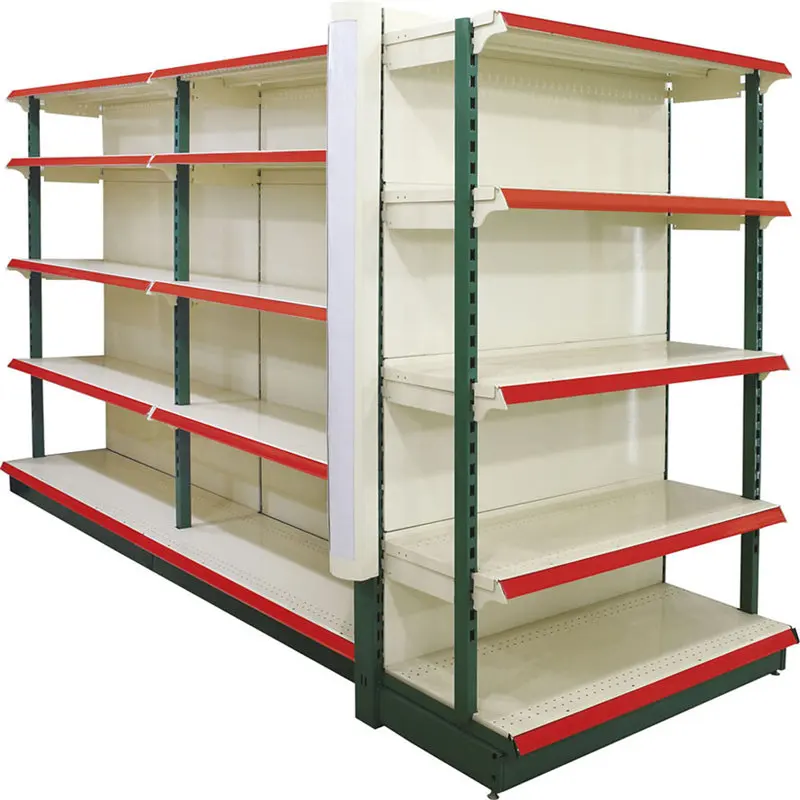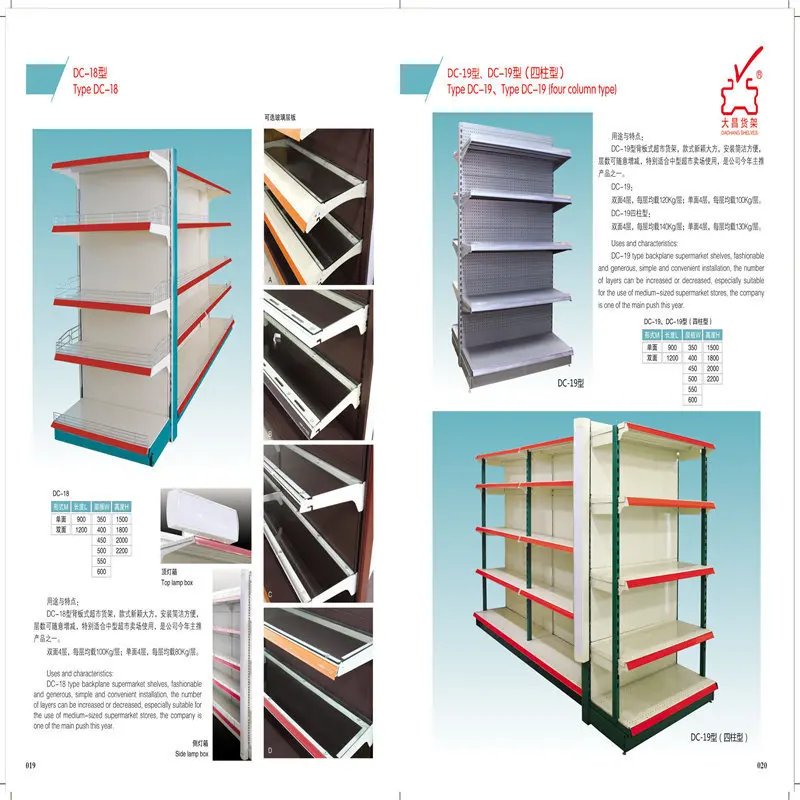When it comes to choosing the right shelving material for supermarkets, considerations such as durability, aesthetics, and cost-effectiveness are paramount. Metal, wood, and plastic are three commonly used materials in the construction of supermarket shelves.
Comparing these materials will help you understand their pros and cons, ultimately guiding you to make an informed decision based on your supermarket shelf needs.
Durability and Strength
Metal
Metal shelves, often made of steel or aluminum, boast exceptional durability and strength. Metal storage shelving systems can withstand heavy loads, making them ideal for storing items with significant weight or volume. Metal supermarket shelf is also resistant to warping, cracking, and decay, ensuring a long lifespan.
Wood
Wood shelves offer natural beauty and charm, but they are generally less durable compared to metal. They are prone to water damage, rot, and insect infestations if not properly treated. While suitable for lighter loads, wood shelves may not hold up well under heavy or constant weight.
Plastic
Plastic shelves, commonly made from materials like high-density polyethylene (HDPE), offer moderate durability. They are resistant to moisture, corrosion, and rust, making them suitable for refrigerated sections or humid environments. However, plastic shelves may not be as sturdy as metal or wood options, making them more suitable for lighter items.
Versatility and Aesthetics
Metal
Metal storage shelving systems often exude a sleek and modern appearance, making them a popular choice in contemporary supermarket designs. They are available in various finishes, including chrome, powder coating, or stainless steel, allowing for customization to match the store's aesthetic.
Wood
Wood shelves bring warmth, natural beauty, and a classic appeal to the supermarket setting. They are available in different wood types, finishes, and stains, providing versatility in design and allowing for a rustic or traditional ambiance.
Plastic
Plastic shelves are typically less visually appealing compared to wood or gondola metal shelving units. However, they are available in different colors and can be molded into various shapes and sizes, providing some flexibility in design.
Maintenance and Cleanliness
Metal
Metal shelves are relatively low maintenance, requiring minimal cleaning. They are easy to wipe down and are resistant to stains, making them suitable for supermarkets with high traffic and spill-prone areas.
Wood
Wood shelves require regular maintenance to preserve their appearance and functionality. They need to be sealed or coated with protective finishes to prevent moisture absorption or staining. Wood also requires periodic cleaning and polishing to maintain its aesthetics.
Plastic
Plastic shelves are highly resistant to stains and are easy to clean. They can be quickly wiped down with a damp cloth, requiring minimal maintenance. However, plastic may scratch or scuff more easily than metal or wood.
Cost Considerations
Metal
Metal shelves often come with a higher upfront cost due to the materials and manufacturing processes involved. However, the long lifespan and durability of metal storage shelving systems can provide cost savings in the long run, as they require less frequent replacement or repair.
Wood
Wood shelves are generally more affordable upfront compared to metal, making them a budget-friendly option. However, they may require more frequent replacement or repairs, leading to higher long-term costs.
Plastic
Plastic shelves typically fall in the mid-range regarding cost. While they may be more affordable than metal, they may not offer the same level of durability or longevity.
Gondola Shelving System | Lozier Gondola Shelving-DC19
Conclusion
In the battle of materials for supermarkets, metal supermarket shelf emerges as the winner in terms of durability, strength, and low maintenance requirements.
Metal storage shelving systems offer long-lasting performance, making it ideal for heavy-duty use in supermarkets. Wood shelves provide a charming aesthetic appeal but may require more upkeep and have limitations in terms of load-bearing capacity. Plastic shelves offer moderate durability and easy cleaning but may not be as sturdy as metal or wood options.
In a word, the decision ultimately rests on your unique needs and preferences. By carefully considering the factors outlined in this article, you can select the most suitable material for your supermarket shelving needs, ensuring an efficient and visually appealing display of products while maximizing the lifespan and functionality of your shelving system.
It is recommended to consult with a supermarket shelves manufacturer or supermarket shelves supplier who can provide guidance based on your specific requirements. They can help you evaluate the pros and cons of each material and assist in finding the right balance between functionality, aesthetics, and cost-effectiveness.



.jpg)